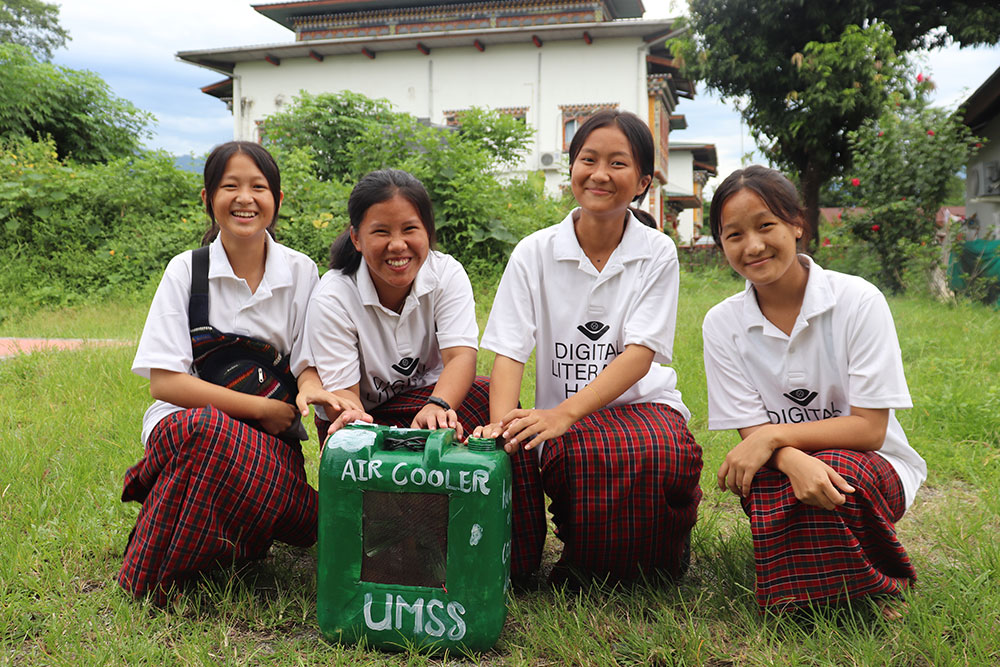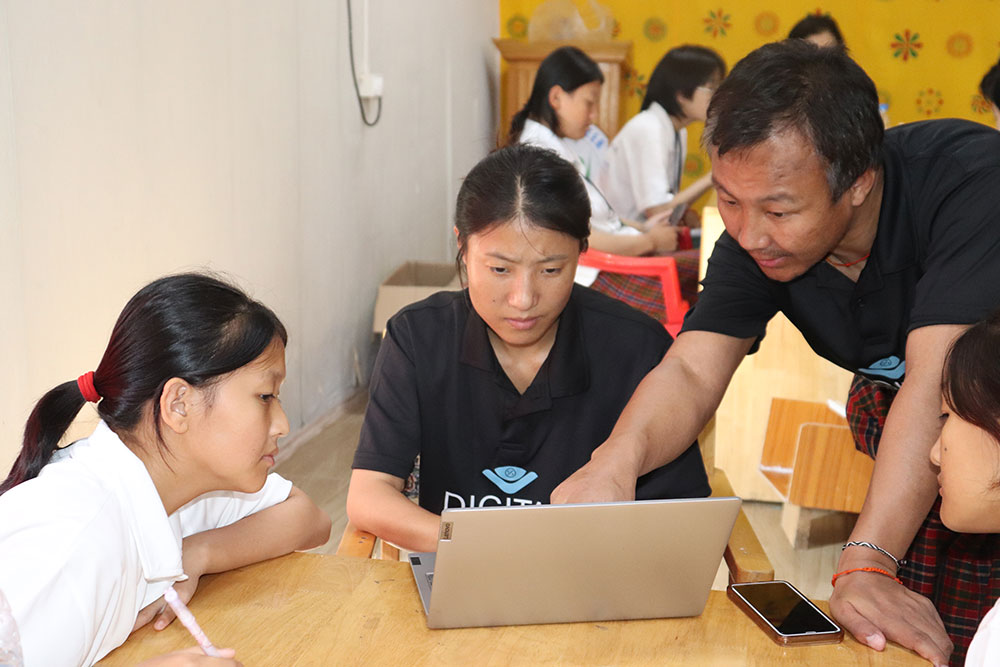Sherab Lhamo
Twenty-eight girls from seven dzongkhags participated in a four-day hackathon on Science, Technology, Engineering and Mathematics (STEM) in Gelephu which ended on September 30.
The hackathon sessions consisted of Neural networks, Space technology, Data Science AI and digital literacy, with mentorship from GovTech agency resource people.
The hackathon was organised to narrow the gender gap in STEM education and inspire adolescent girls to explore the opportunities in technology.
Of the 43 ideas from 129 schools and 10 youth centres, seven were shortlisted for the hackathon. Seven teams, including one from the youth centre competed for seed funding, pitched their ideas and showcased their prototype.
Buli Central School came first, with an idea to design automatic street lights to provide safety on the school campus, second place was taken by Khuruthang Youth Centre in Punakha for their idea to develop mobile applications that would encourage students to take up STEM subjects. Gomtu Higher Secondary School came third with their idea to develop a mobile application to promote local arts and crafts.
Sonam Tshomo, a class 10 student from Buli CS, said, that in her community they had limited streetlights, so her team took the issue and created an idea to design automatic streetlights in schools.

According to a joint press release from the education ministry and UNICEF, women make up less than 30 percent of the global STEM workforce. “In Bhutan, 68 percent of youth between the ages of 15 to 24, lack digital skills according to the World Skills Clock – that monitors learning and skills trajectories globally using a real-time data model of each country.”
Kinley Pem, a class 11 student at Ugyen Academy, said that girls are just as smart as boys and have innovative ideas that they want to implement in the community using technology.
Like the idea to develop an app to build a strong foundation for STEM by our group, that idea can be brought to reality,” Kinley said.
Deputy Chief Counsellor with the Department of Education Programmes, Ministry of Education and Skills Development, Amrith Bdr Subba said that the hackathon was held to empower adolescent girls with digital skills and encourage more girls to take up STEM education and enable them to use technology to find innovative solutions to problems in the communities.
“This hackathon is an amazing programme that motivates adolescent girls to showcase their talents and helps to make changes in the community, and convince the community that adolescent girls can equally contribute like the adolescent boys,” said a student of Ugyen Academy representing Khuruthang Youth Center, Pema Choden.
She said, “Adolescent girls are often underestimated by the community, and told we cannot do anything or do not have the potential to make a change in the community and look down on us.”
Adolescent girls often face significant barriers to education, economic opportunity, and health care, which can limit their ability to fully participate in society and reach their full potential, said UNICEF Bhutan Representative, Andrea James.
“Empowering our adolescent girls through platforms such as this hackathon will help them overcome barriers and take up opportunities that STEM education has to offer,” Andrea James said.
While many young people, including adolescent girls in urban centres have access to technology, many cannot afford digital devices, which limits their learning opportunities, the press release stated.
The hackathon was organised by the Ministry of Education and Skills Development, and the GovTech Agency in partnership with UNICEF Regional Office for South Asia and Women in Tech Maldives to support girls and young women in South Asia, especially the marginalised, who are able to succeed in an increasingly global, digital and hyperconnected world.


